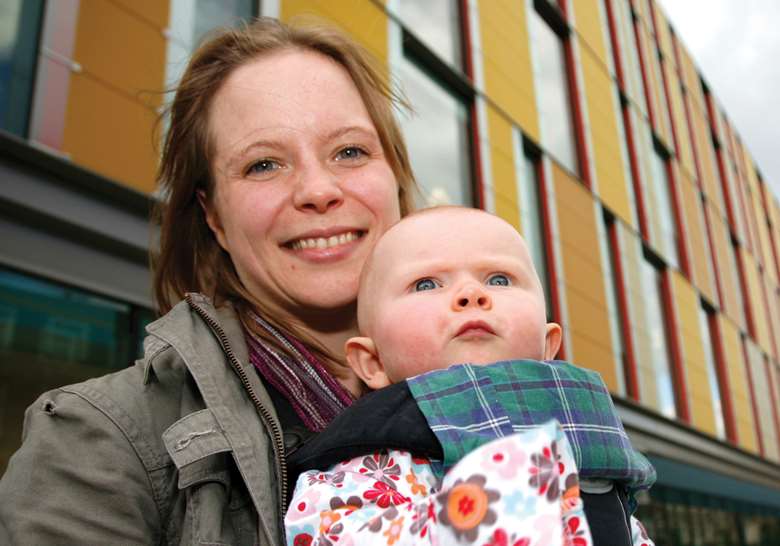In Focus - Sure Start children's centres
Anne Longfield, 4Children
Tuesday, October 28, 2014
Advertorial in association with 4Children.

IN DEPTH
Growing numbers of families are relying on Sure Start children's centres. The vast majority are working in close partnership with health, social services and troubled families teams. This is according to the 2014 Children's Centre Census published by 4Children last month.
Census findings show that more families than ever before - over one million in total - are receiving support. This includes 335,000 vulnerable families.
In the coming year, children's centres are expecting to make rapid and large-scale changes to service delivery, including the continued move away from universal services towards targeted support. Centres are working hard to maintain a universal front door with key services such as "stay and play".
However, decreasing budgets mean centres are trying to meet growing demand with reduced resources. The immediate future for a number is looking uncertain as some local authorities consult on their plans to reduce their service.
INSIGHT
The vision for Sure Start centres was a bold one; a new local centre to bring together all the health, education, childcare, parenting advice and specialist support parents with young children need. Grounded in communities, this trusted provision of support would be valuable to all children and parents, but especially for disadvantaged families.
Sixteen years on, the vision lives on in some of the most prized services around the country. Centres are vital sources of support for hundreds of thousands of parents with young children. Children's centres have broadened and diversified their activities in response to the needs of families.
As centres have moved to a more targeted approach, there is also a new confidence in providing more specialist support for families with complex needs. The majority of centres now provide support to deal with domestic violence, alcohol dependancy and mental health. Many work alongside Troubled Families teams and the majority work closely with social services.
However, Sure Start is not immune to the reality of reduced local budgets and pressures to deliver more for less. The issue of managing overwhelming need and service delivery alongside financial cuts is a serious concern for more than half of the centres who took part in our census. Fifty-three percent say meeting demands for services on tighter budgets will be a huge challenge in the coming year.
While recognising the budgetary pressures, this is not the time to step back from this vital service which is only just becoming established in many areas. Firstly, centres are pioneers of the new way of working that so many areas are seeking to establish. Integrated services, pooled or linked budgets, joint commissioning and community engagement are all at the heart of Sure Start children's centres that can become the building block and springboard for wider reform.
Secondly, the quarter of a million vulnerable families benefitting from this specialist help will be at a greater risk of slipping into crisis if Sure Start services are reduced - the social and economic cost of which are well known.
As all political parties look to their general election manifestos for 2015 all families will be looking for commitments of support to help their children flourish. For over a million families this will mean a strong commitment to Sure Start to ensure that these vital services continue and grow.
By Anne Longfield OBE, chief executive, 4Children
INFORMED
- Sure Start was created in 1998.
- Its core purpose is to improve outcomes for young children, with a strong emphasis on those from disadvantaged households.
- Centres were designed to offer under-fives and their families with access to integrated early childhood services.
- In 1998, the government announced plans to fund 250 Sure Start projects with the aim of reaching 150,000 children in areas with high concentrations of child poverty. The first 60 Sure Start local programmes commenced in 1999.
- 2004 saw the national rollout of children's centres and the transformation of local programmes into centres.
- Today, approximately 3,300 children's centres are helping over a million families in local communities.
4Children 2014 Children's Centre Census
- 879 centres responded to the census, representing 27 per cent of centres.
- 57 per cent of children's centres expect their budgets to reduce during the next year and another 22 per cent are unsure of what will happen with their finances. Many predict rapid and large-scale changes to the way they deliver services, including a move from universal to targeted support.
- Three quarters of children's centres say the balance between universal and targeted services is shifting.
- The most common universal services are stay and play (provided by 97 per cent of children's centres); parenting advice (93 per cent); breastfeeding support (92 per cent); health checkups with health visitors (86 per cent) and baby massage (84 per cent).
- The most common targeted services are support for victims of domestic abuse (provided by 88 per cent of children's centres); child protection (80 per cent); speech and language therapy (76 per cent); employment support including JobCentre Plus (70 per cent); and support for mothers with post-natal depression (66 per cent).




